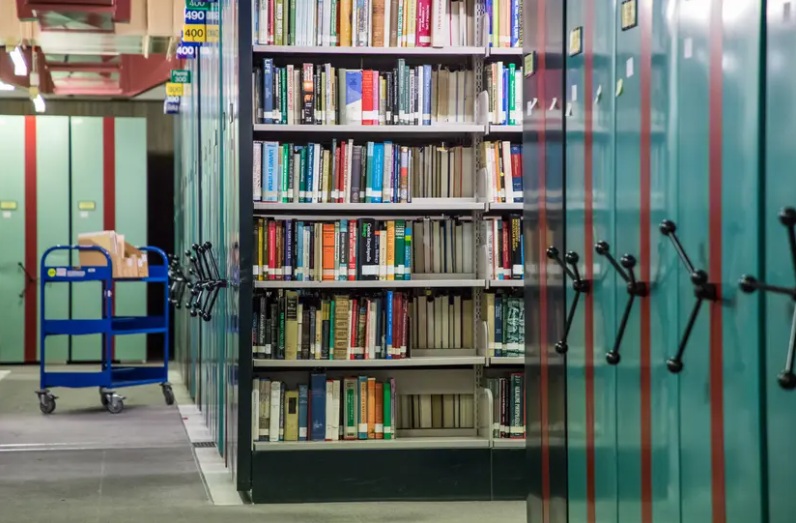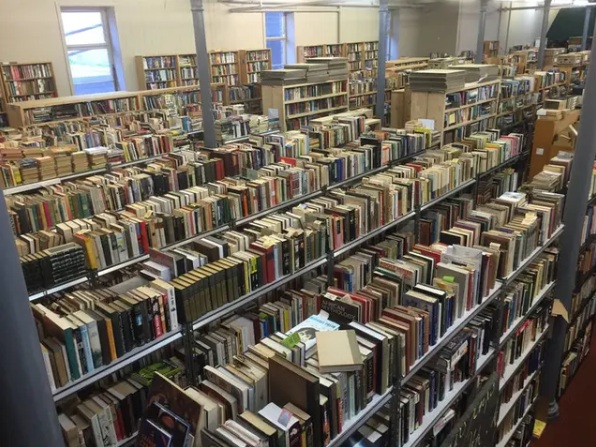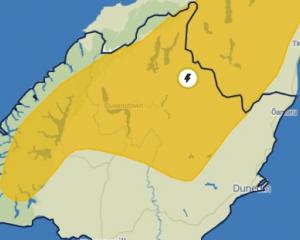
The National Library claims they've been trying to re-home them since 2018, that there's no demand, and that most haven't been requested in decades. They say the process of shredding and recycling them, via a commercial service, has started.
Book dealer and Hard To Find Books owner Warwick Jordan says he couldn’t sleep last night and felt physically sick. His various offers over the years to take all the books himself haven’t been accepted.
“To give you some context, this issue actually goes back to the 1990s. In the late 1990s, the National Library wanted to get rid of about this number of books. Initially, what they did was they started putting them up in small groups in tender. They put two tenders out. I won both of them, a total of about 30,000 books.”
The process of dealing with the remainder was stalled when the issue became political, he says, until 2018 when only 5000 out of 45,000 were sold via a Lions Club book sale.
Jordan labelled the book sale idea as “dumb” because the books - although valuable to him - wouldn’t be of interest to the average person. The library ended up giving him the leftover from the sale.

The books are international, mostly non-fiction and cover a range of topics like were bibliography, religion, philosophy and computer science.
Jordan says one example of a book that was going to junk was a two-volume set bibliography of UFO books from the 1950s. He believes it could retail for $300-$500.
“I'm not saying they're all worth that kind of money. But there's a lot of interesting and unusual things that wouldn't sell to the average Joe public. But there are people out there who are interested, specialised interest.”
Jordan says he continued to make offers for the remainder, including packing, delivery, and paying money for them.
Although now he longer can afford to make the same financial offer as he did back then, he’s willing to find a way to make it work.
“I mean, if I want to make money, I'd go and sell something that actually sells. I want to save the books. It's a disgrace. There could be books in there that is the only copy in the world. Who knows?”
National Library director of content services Mark Crookston told Afternoons they had undertaken a range of considerations before reaching this decision.
“We've found homes for about 100,000 items and haven't found home for about 500,000 items. The sale option is one of those options that we considered and we discounted in this instance.”

Another reason was the costs required to stamp every book as ‘withdrawn’ and remove the sleeves, Crookston says.
“We'd have to either employ our existing people away from doing things that they're currently doing or employ additional people to do this … That's quite a considerable, many hundreds of thousands of dollars undertaken.”
Jordan was baffled, saying there’s no logic to it because he believes the service doing the disposal would charge a lot to be remove the sleeves and all the materials on books that can’t be recycled.
“I don't understand because we could do that for them.”
Crookston rebutted that saying “collection management 101” principles mean they couldn’t allow that.
“We think what's in the best interest of New Zealanders via the National Library is for these books to be destroyed. That's the most cost efficient and cost-effective way to deal with this issue.
“Library leaders around New Zealand and the world know that when there's large disposal projects or processes undertaken with books is that there's strong views held about it because a lot of people just don't like books being destroyed. But in collection management, that's just what a lot of libraries have to go through.”













